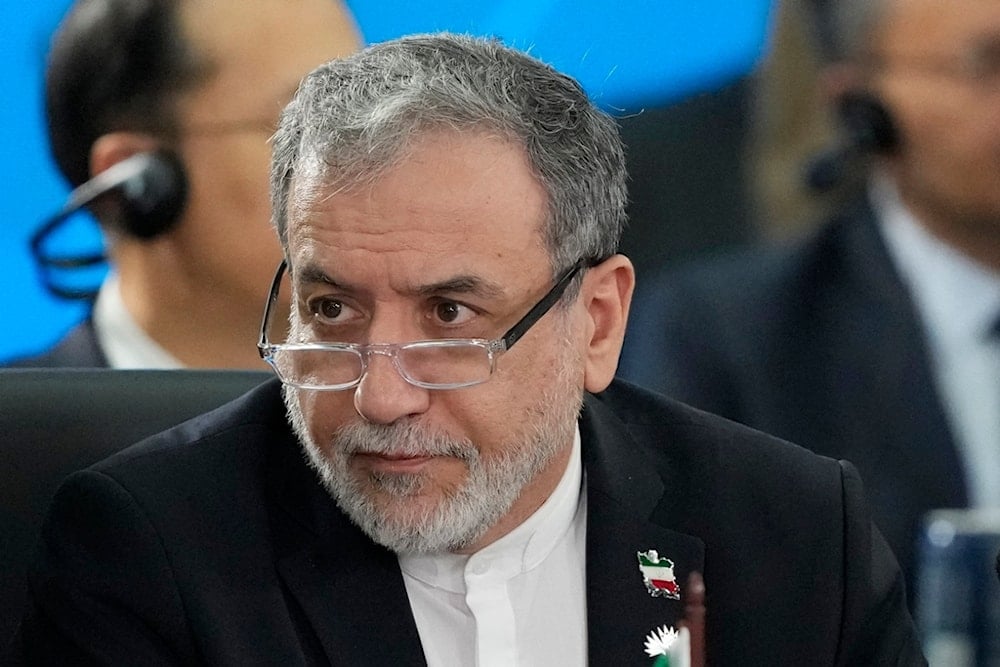Iran’s Araghchi: Our nuclear bomb is resilience, not weapons
Iran’s FM Abbas Araghchi says Iran’s true nuclear bomb is its resilience, rejecting US pressure and vowing not to yield to global powers.
-

Iran's Foreign Minister Abbas Araghchi attends the 17th annual BRICS summit in Rio de Janeiro, Brazil, July 7, 2025 (AP)
Iran’s Foreign Minister Abbas Araghchi stated on Saturday that the country’s true “nuclear bomb” lies in its resilience and refusal to yield to global powers.
“The problem with the United States is its authoritarian nature, and there is no basis for trust in Washington,” Araghchi said, stressing that Iran has the capability to manage its affairs independently and will not give up the rights of its people while remaining open to any fair and logical solution.
His remarks came days after the Leader of the Islamic Revolution, Sayyed Ali Khamenei, dismissed US President Donald Trump’s comments about “destroying Iran’s nuclear industry,” describing them as pure illusions.
Addressing Trump directly, Sayyed Khamenei said, “Go ahead and live with this illusion,” adding that “the United States represents the very embodiment of terrorism.”
Iran says nuclear rights intact
Iranian Foreign Ministry spokesperson Esmaeil Baghaei affirmed on Monday that UN Security Council Resolution 2231 has "formally ended as of October 18," in full accordance with its explicit text.
He explained that while the resolution's time-bound restrictions have expired, "some of the rights it granted to Iran, including recognition of its enrichment program and related activities, remain intact," a reminder that Iran's peaceful nuclear achievements retain international legitimacy.
Baghaei reiterated that the 2015 nuclear agreement, the Joint Comprehensive Plan of Action (JCPOA), was a "temporary understanding" under which Western parties pledged to lift "unlawful sanctions" targeting Iran's civilian nuclear program, while Tehran voluntarily implemented transparency and confidence-building measures.
He noted that Iran upheld its commitments long after Washington unilaterally abandoned the deal in 2018, with fifteen IAEA reports up to 2019 confirming Tehran's full compliance.
Tehran strengthens alliances
As Western capitals escalate pressure, Tehran is strengthening partnerships with Russia, China, and members of the Non-Aligned Movement (NAM) to counter what it views as illegal coercion. Araghchi said that the three countries are coordinating "to neutralize the European Union's unilateral actions" and to preserve genuine multilateralism.
The NAM's Kampala communiqué echoed that stance, affirming that Resolution 2231 remains valid in principle and that the October 18 deadline for lifting all nuclear-related restrictions must be respected.
Domestically, Deputy Foreign Minister Hamid Ghanbari announced that Iran has adopted an "active economic response" to blunt the effects of Western sanctions, noting that "if the domestic economy is strong, Iran will have the upper hand at the negotiating table."

 3 Min Read
3 Min Read










